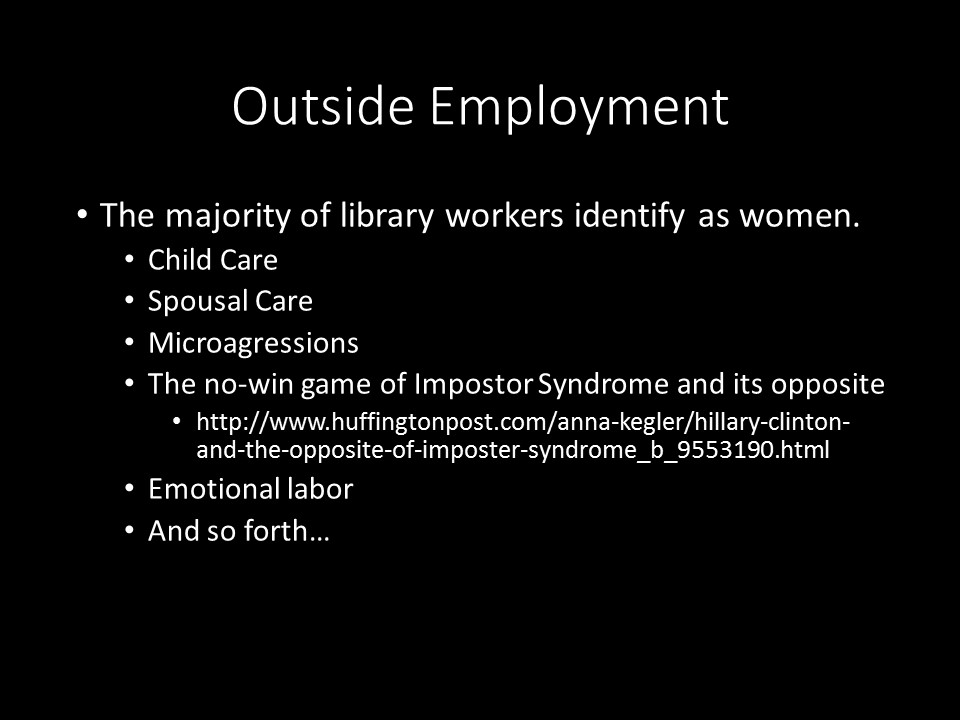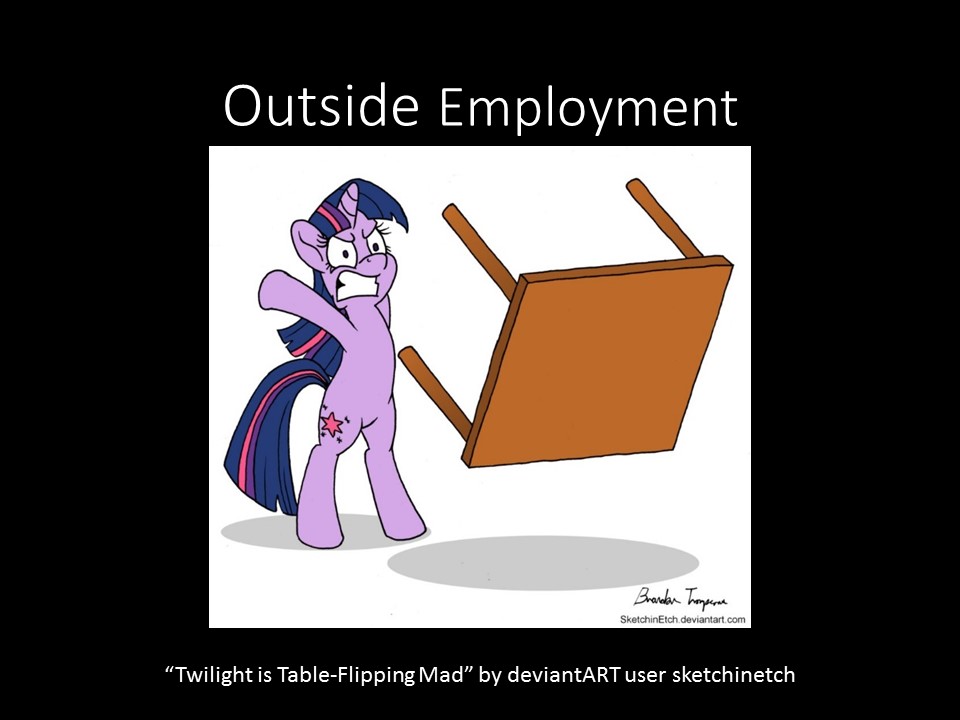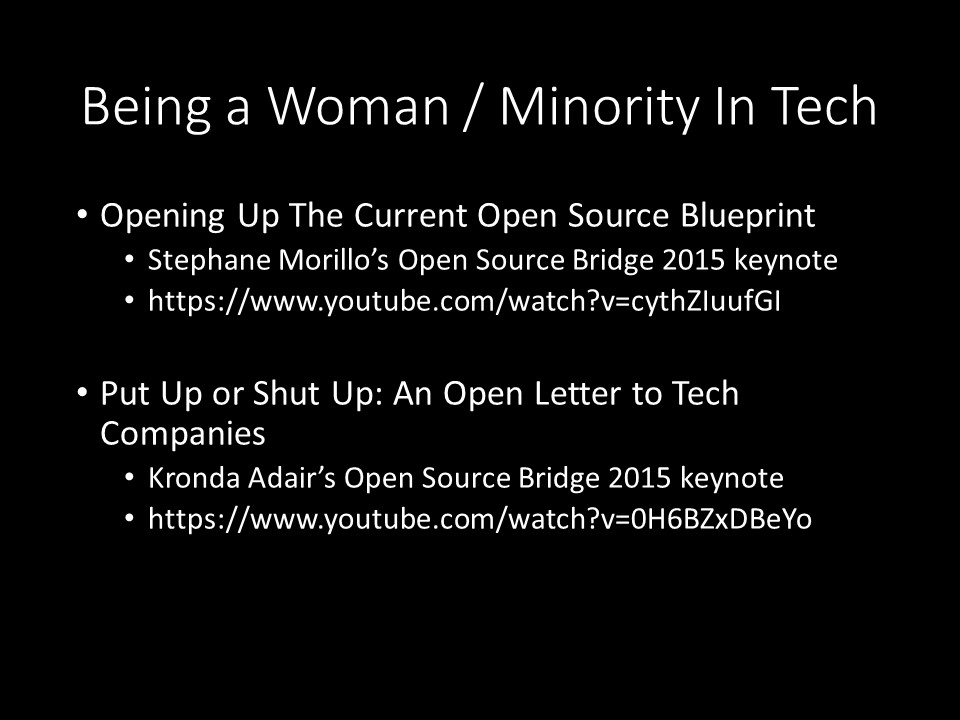Outside Employment

Then, to add to the degree of difficulty, a large majority of the public-facing workers in libraries identify as women, so they're probably also having to deal with the additional emotional and time costs of household management, which may or may not include child care, and the dangers of being a woman on the Internet or in any other technological space. That, incidentally, is the major problem with the other option that Sheldon-Hess proposes, as being a woman or minority in tech is almost guaranteed to result in a table-flip.


Both Stephanie Morillo's keynote from Open Source Bridge 2015 and Kronda Adair's Keynote from Open Source Bridge 2015 put it into very stark terms about what minorities are facing in trying to get into tech sector work. Either way, it's Clown Shoes, because there's no way for anyone to learn how to do this thing at work, being paid to learn. Because there aren't enough people on the staff to have any free time, there's also basically no method for someone to get mentorship on the actual systems they're using, so that interested parties that have data needs could start tinkering with APIs and possibly building their own queries against the database to get back what they want.

So, neither of these options are close to workable, if you are anything other than, well, me. Not me, specifically, as I don't have those necessary skills, but someone who presents, looks, and sounds like me, and can call forth the power of their privilege to gather resources to their side. Calling those options "Clown Shoes" is, at best, being polite.